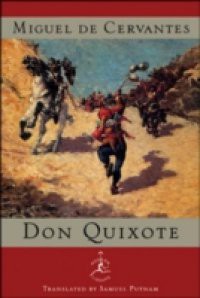Don Quixote is practically unthinkable as a living being, said novelist Milan Kundera. And yet, in our memory, what character is more alive? Widely regarded as the world's first modern novel, Don Quixote chronicles the famous picaresque adventures of the noble knight-errant Don Quixote de La Mancha and his faithful squire, Sancho Panza, as they travel through sixteenth-century Spain. This Modern Library edition presents the acclaimed Samuel Putnam translation of the epic tale, complete with notes, variant readings, and an Introduction by the translator.The debt owed to Cervantes by literature is immense. From Milan Kundera: Cervantes is the founder of the Modern Era. . . . The novelist need answer to no one but Cervantes. Lionel Trilling observed: It can be said that all prose fiction is a variation on the theme of Don Quixote. Vladmir Nabokov wrote: Don Quixote is greater today than he was in Cervantes's womb. [He] looms so wonderfully above the skyline of literature, a gaunt giant on a lean nag, that the book lives and will live through [his] sheer vitality. . . . He stands for everything that is gentle, forlorn, pure, unselfish, and gallant. The parody has become a paragon. And V. S. Pritchett observed: Don Quixote begins as a province, turns into Spain, and ends as a universe. . . . The true spell of Cervantes is that he is a natural magician in pure story-telling.

